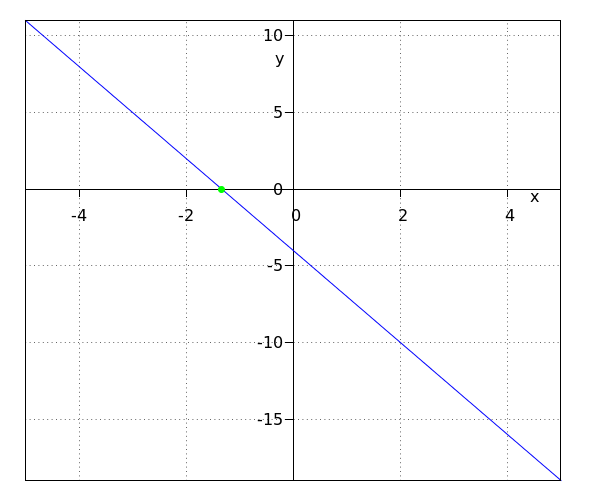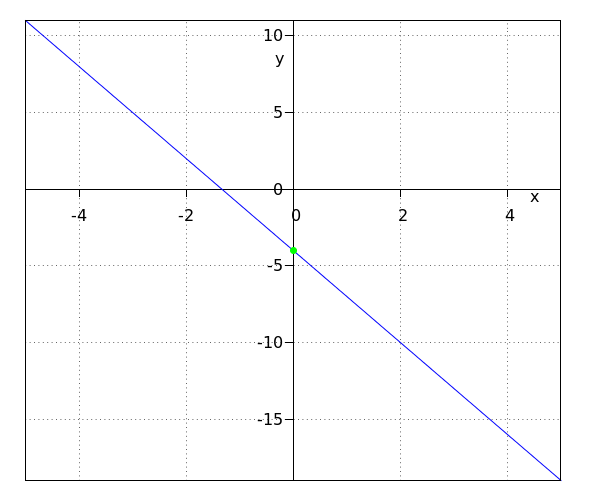Linear formulas and equations: Linear equations and inequalities
 Intersection points of linear formulas with the axes
Intersection points of linear formulas with the axes
Intersection point with the x-axis
Intersection point with the y-axis
The line #x -y = -9# has an intersection point with the #x#-axis and an intersection point with the #y#-axis. The first point has the form #\rv{p,0}# and the second #\rv{0,q}# for certain numbers #p# and #q#. What are #p# and #q#?
#p=-9#
#q=9#
Because if #\rv{p,0}# lies on the line, then #p -1\cdot 0 = -9# applies (this follows from entering #x=p# and #y=0# in #x -y = -9#). This is a linear equation with unknown #p#, where #p=-9# is the solution.
Similarly, entering #x=0# and #y=q# in the equation #x -y = -9# gives the linear equation #-1\cdot q = -9# with solution #q=9#.
#q=9#
Because if #\rv{p,0}# lies on the line, then #p -1\cdot 0 = -9# applies (this follows from entering #x=p# and #y=0# in #x -y = -9#). This is a linear equation with unknown #p#, where #p=-9# is the solution.
Similarly, entering #x=0# and #y=q# in the equation #x -y = -9# gives the linear equation #-1\cdot q = -9# with solution #q=9#.
Unlock full access


Teacher access
Request a demo account. We will help you get started with our digital learning environment.
Student access
Is your university not a partner?
Get access to our courses via Pass Your Math independent of your university. See pricing and more.
Or visit omptest.org if jou are taking an OMPT exam.
Or visit omptest.org if jou are taking an OMPT exam.





